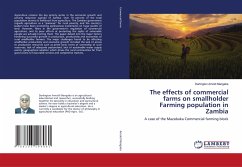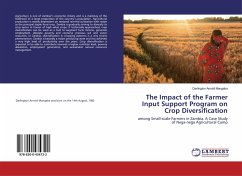In this book, it is concluded that the regulatory culture has only been changing slowly from 1973 to 2015 and that one has to closely and deeply examine it from a socio-legal perspective to understand this change. This publication does exactly that. Throughout the regulatory transition, the State has depended on a monolithic use of Command and Control approaches to subtly keep a regulatory culture which can be traced from the time before independence. This publication does not accord space for discussing the demerits and/or merits of this regulatory culture. The publication is a technical socio-legal exposition of the blind side of a Command and Control regulatory culture in the midst of a changing world. It is one thing that the State has had its forestry values rightly and legitimately protected since independence in 1964. But it is another thing, even more difficult, to comprehend whether such a protective approach does achieve its intended purposes or not.
Bitte wählen Sie Ihr Anliegen aus.
Rechnungen
Retourenschein anfordern
Bestellstatus
Storno








